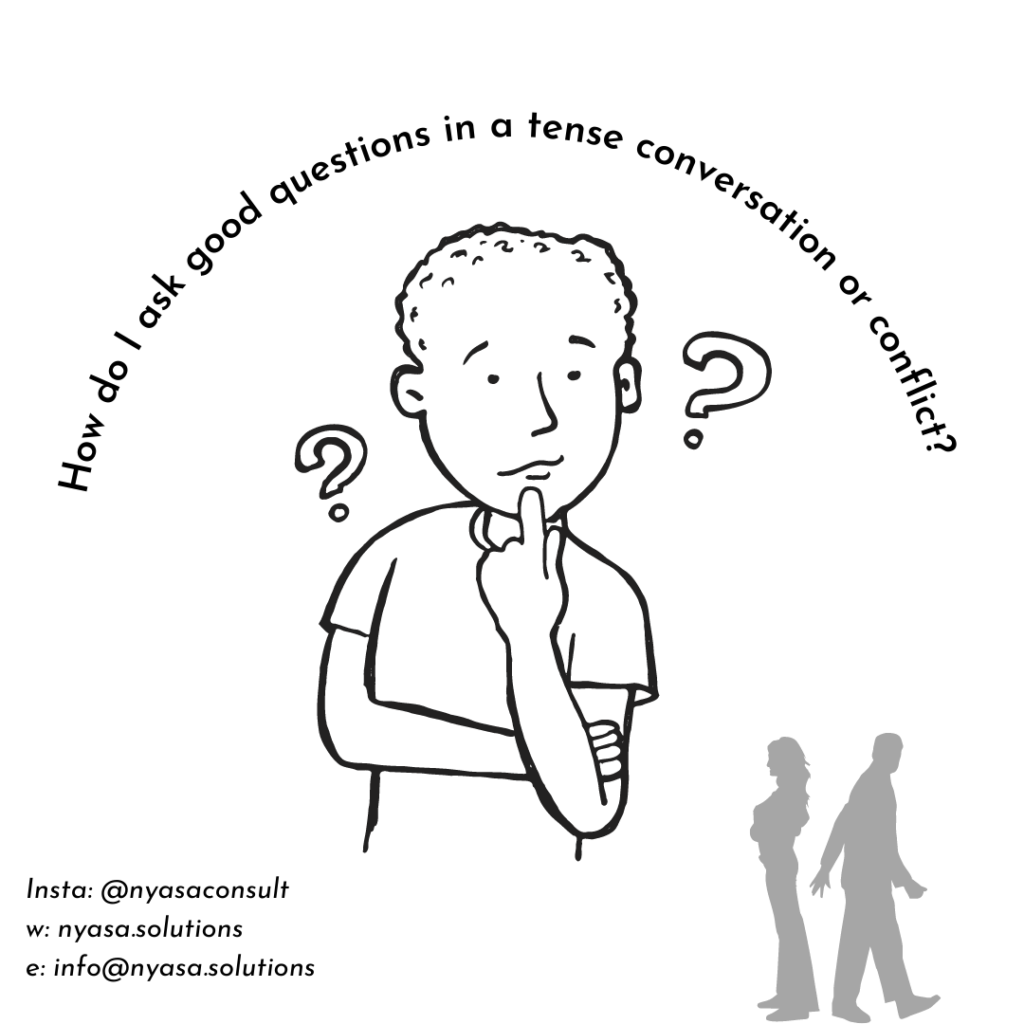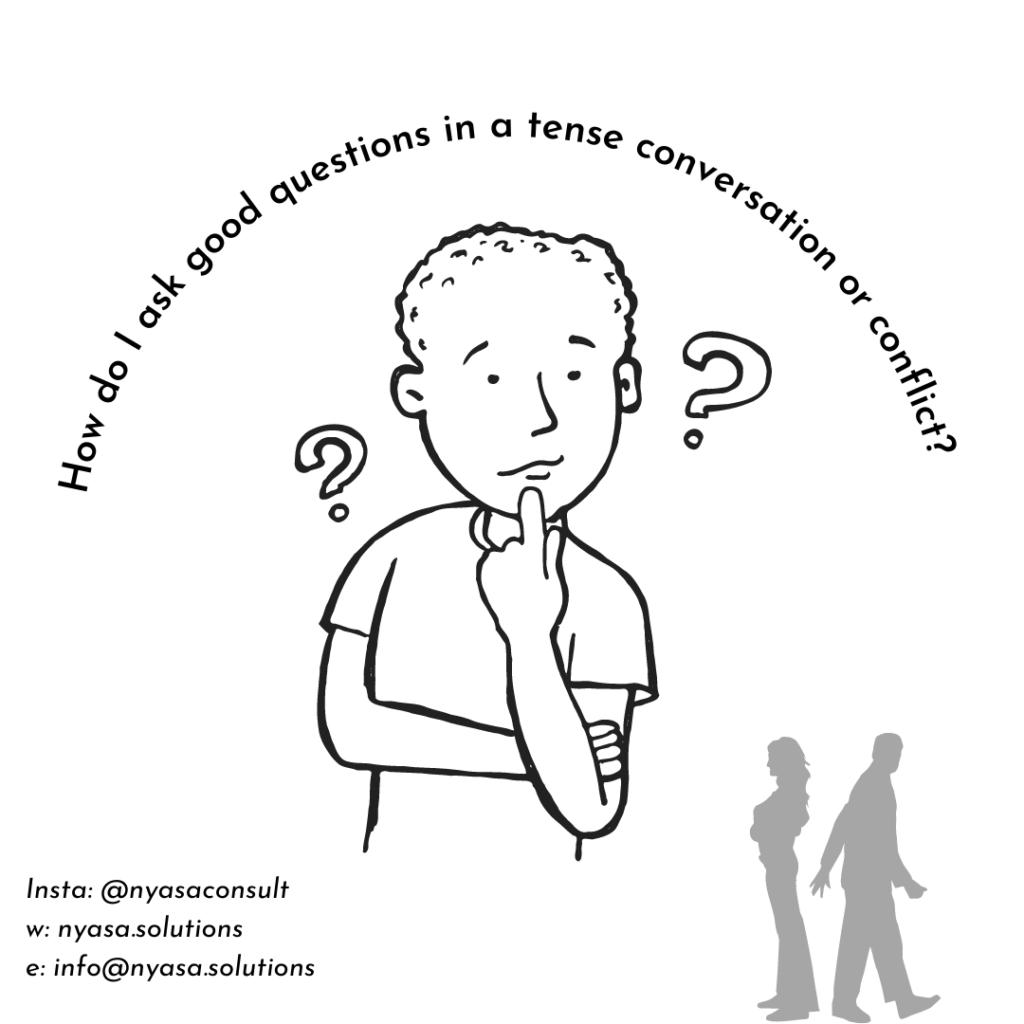Are you dealing with a tense conversation or a seemingly unresolvable conflict? You must be wondering, how do I ask good questions?
We all have conversations with others every day. Usually, such conversations are easy to have. However, as soon as there are tensions or a conflict, it becomes more difficult to have a good conversation. This is because, for example, we dread dealing with our beliefs and assumptions about the person concerned, we find it difficult to be vulnerable or because we cannot or do not want to have a conversation in a conflict situation.

Mediator breaks the ice
When the parties are open to solving their conflict under the guidance of a mediator, I notice in practice that the parties have difficulty listening carefully to each other and being genuinely curious. Our role as mediators is so important in this kind of a deadlock. The mediator may use many of the analytical, verbal, and interpersonal skills in mediation, including active listening and report building. The mediator helps parties to disclose their history by being empathetic and attentive. He/she acknowledges what is shared, ask questions which demonstrate his/her interest and attention, paraphrase or summarize what he/she hears. These actions develop an atmosphere of trust and confidence between the parties. It helps the parties tell and listen to the facts from each other’s perspective. It also helps them explain and clarify their own perceptions, communicate and work together and also identify the interests of the parties.
Tips for asking good questions
Here are some tips on how to ask the right questions during a tense situation or a conflict:
Be Open-Minded — you must be able to be open and free of judgement (as much as possible). Be open to what the other has to say and don’t show what you think (nor in word or in deed). Turn off your mind, as it were, and listen as if you were hearing the story for the first time.
Be Genuinely Curious — Ask the questions and be genuinely curious. You are asking with the aim to find out where someone stands in terms of the level of intensity in a conflict situation. While doing this, dare to touch a sensitive nerve because then you are often touching the core of the issue.
Listen, summarize, and keep asking questions: Actively hear by listening to the person’s story, but also seeing what it is doing to them while they are talking about it. See the emotion, hear the intonation, and feel the charge and name it.
After listening to a part of the story, check whether you heard everything correctly by summarizing. To connect well with the person with your summary, use his/her wording as much as possible. The person will feel heard and will correct you if don’t agree with your perception of their story, or even complete the picture by adding onto your story.
I say, part of the story because you don’t stop at that. In order to get the complete story and to correct your assumptions, you need to keep asking questions to find out the person behind the person — what drives him/her? Instead of asking questions that start with a ‘why’, try ‘how come you feel that’, ‘what makes you think that way’, etc.
If you are not able to apply these basic techniques in a conflict situation, but you do want to try to find a solution, please feel free to contact with a mediator.


Pingback: Have a difficult conversation? Use these tips! - Nyāsa